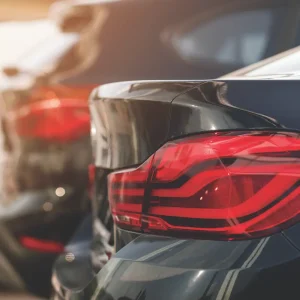After last year’s announcement of a new structure bringing the PSA sister brands of Citroen, DS and Peugeot closer together in management terms, including Martin Gurney taking on fleet responsibility for all three, the company has now completed reshaping corporate sales operation and says it is ready to reap the rewards.
Last December, it was announced there would be an overall director general of PSA Peugeot Citroen UK. Three other areas of the business – communication, events and partnerships; parts and service; fleet and used vehicles – also each gain a director across all brands, with former Peugeot fleet boss Martin Gurney assuming the position for the corporate sales function.
The first half of 2015 was then spent planning a new, joined-up approach, which has now been completed.
“It’s the kind of approach you have to take in an organisation that is becoming leaner and leaner,” Gurney explains to BusinessCar. “In the new structure I report to Stephane Le Guevel [PSA’s UK director general], and I consider I have responsibility to the Citroen, Peugeot and DS brand directors and to the business-to-business and used teams.”
Reshaping the fleet operation came in several parts, with the leasing and rental element being the most straightforward. “All they said was that they would prefer to deal with one person.
It was inefficient from their perspective and arguably from ours [to have separate Peugeot and Citroen representatives dealing with the same lease or rental firm],” says Gurney. “It was a no-brainer decision to become a PSA team.”
What to do with the company’s key fleet accounts was a different issue that Gurney describes as “more complicated”, even though only around 10% of fleets had any significant crossover of Peugeot and Citroen within their vehicles. The larger “super accounts”, as Gurney describes them, had both, but the bi- or tri-brand deals forged by Peugeot or Citroen don’t also contain the sister brand.
“In terms of creating a corporate sales team, it was clear we would be uprooting a lot of relationships if we went to a joint team overnight – everybody would be dealing with a new contact,” continues Gurney. “So we decided to retain separation in the corporate accounts team.”
That means six UK territories, with a Peugeot and a Citroen/DS account manager working in tandem across each. “They are targeted to work together as a team; we have protected loyal relationships but they are targeted as a team,” he says. “That could be new opportunities, or could be a Peugeot customer where there is an opportunity to bring in Citroen in a complementary way.”
Gurney says the two brands are handily placed in life-cycle terms, as the cycles on key cars are at odds – the Peugeot 208, 2008 and 308 are at different points to the C3 and C4, for example, or the C4 Picasso and Cactus are newer than the likes of the 3008 and 5008. “We can now go in and get extra volume that might be leaking to competitors,” he says. “We think we have come up with a clearer way of having our cake and eating it: look after customers and do what they want.
“And we’re starting to see the first examples of selling Peugeot products to Citroen/DS customers, and vice versa where we wouldn’t have done before.
“Where we are now is a great place to move forward. Lease and rental are delighted with what we have done, key corporates are happy, and we think we have got a tremendous opportunity in cross-selling and a brand new fleet operation,” Gurney continues. “The results year-to-date have been encouraging, our channel mix is improving and it’s a strategy we are really wedded to.”
DS: The premium brand
PSA’s plan to establish its DS brand in its own right as a premium badge is still moving along, although the company admits it could take up to 25 years to get there.
DS separated from Citroen this year, with Citroen logos disappearing from the cars at their revamps. This has already happened for the DS5 (pictured), is happening this month for the DS4, and will follow for the DS3 early next year.
“It’s about creating a foundation for the future. DS is the premium brand and we all understand that takes decades to do,” says a PSA spokesman. “We have a very strong development plan over the next five years, with additional products over the three we have at the moment.”
There are plans for a total of six new models, including replacements for the existing line-up, by 2020, although they are global vehicles and not all necessarily destined for Europe. The first should be coming by the end of 2017.
The supermini DS3 has been the stand-out model for the brand, and fleet boss Martin Gurney says it’s not just been in retail that the three-door model has found favour: “It has been a fantastic success in the public sector, salary sacrifice and SMEs through our dealers, and it has a place with corporate accounts. It works well with a number of different partners, so it’s far from a retail product.”





